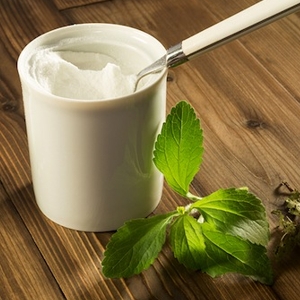Millions of people the world over turn to low-calorie sweeteners to help them lose weight or maintain weight loss. But some low-Calorie sweeteners may be dangerous for pregnant women, causing health issues for their children including obesity and increased risk of cardiovascular disease…
 Theresa Rowley of Grand Rapids, Michigan, celebrated her 104th birthday
Theresa Rowley of Grand Rapids, Michigan, celebrated her 104th birthday
January 1, 2018. And she told WZZM-TV13 her secret to a long life
was… Diet Coke (sweetened with Aspartame) every day!
A researcher at the University of Calgary wanted to find out whether low-Calorie sweeteners had any negative effects on pregnant women or their offspring.
“Low-calorie sweeteners are considered safe to consume during pregnancy and lactation, however evidence is emerging from human studies to suggest they may increase body weight and other cardiovascular risk factors,” says Dr. Raylene Reimer.
What they did
Reimer surveyed a wide range of recent human studies examining the connection between low-calorie sweeteners and health issues. She made a number of cogent observations in her report, published recently in the high-profile learned journal Gut.
Her work focused on studies that looked at Stevia (see picture, top of page) and Aspartame, specifically. According to an abstract of her report, Aspartame and Stevia are 200-400 times sweeter than sugar. Stevia, rapidly gaining popularity in our time, was historically used in Paraguay and Brazil to treat diabetes and is an emerging ingredient in a large number of natural products and protein drinks sold in many countries.
What she found
Reimer found that “Even Stevia, which is hailed as a natural alternative to Aspartame and other low calorie artificial sweeteners, showed a similar impact on increasing offspring obesity risk in early life.”
The use of low-Calorie sweeteners has risen significantly in the past few years, particularly among women and children, Reimer notes. Daily consumption is associated with large babies and early menstruation in young females under 10 years of age – a known risk factor for chronic diseases. Additionally, the presence of some but not all of these sweeteners has been detected in breast milk presenting a potential mode of transmission, according to the study.
The takeaway
“Understanding the impact of dietary ingredients on maternal metabolism and gut microbiota may help to define the optimal maternal diet, one which promotes a healthier future for both mother and child,” says Reimer.
My take
Aspartame is an artificial sweetener that’s been around in commercial foods and beverages since 1981 , and has been subjected to heavy scrutiny by many medical and nutritional studies over the years. Wikipedia says 2017 review of metabolic effects by consuming aspartame found that it did not affect blood glucose, insulin, total cholesterol, triglycerides, calorie intake, or body weight, while high-density lipoprotein levels were higher. That’s all good, from a weight loss and cardio health perspective. But it has also been associated with headaches, cancer and neurological conditions. However, those associations have been shown to be unproven, and Aspartame is approved for sale and use by the FDA and national food and drug regulators in most other countries.
Stevia is a natural sweetener derived from the leaves of a South American plant. It’s been used by tribal and local villagers for hundreds of years in Brazil and Paraguay to sweeten food and beverages, and Stevia leaves are still chewed there as a ‘sweet treat’. It’s had its ups and downs with regulators over the years since its modern ‘rediscovery’ in the 1990s. Most recently, though, Stevia has been ‘generally recognized as safe (GRAS)’ by the FDA, and other jurisdictions are following suit. In spite of its relatively high price, it has found fans across the ‘natural’ food industry.
But now, both have Reimer’s assertions to deal with.
Artificial and alternative natural sweeteners are ubiquitous in our world. Let’s see more research like Reimer’s pronto, to either confirm of debunk her theories. Inquiring expectant mothers need to know!
~ Maggie J.

